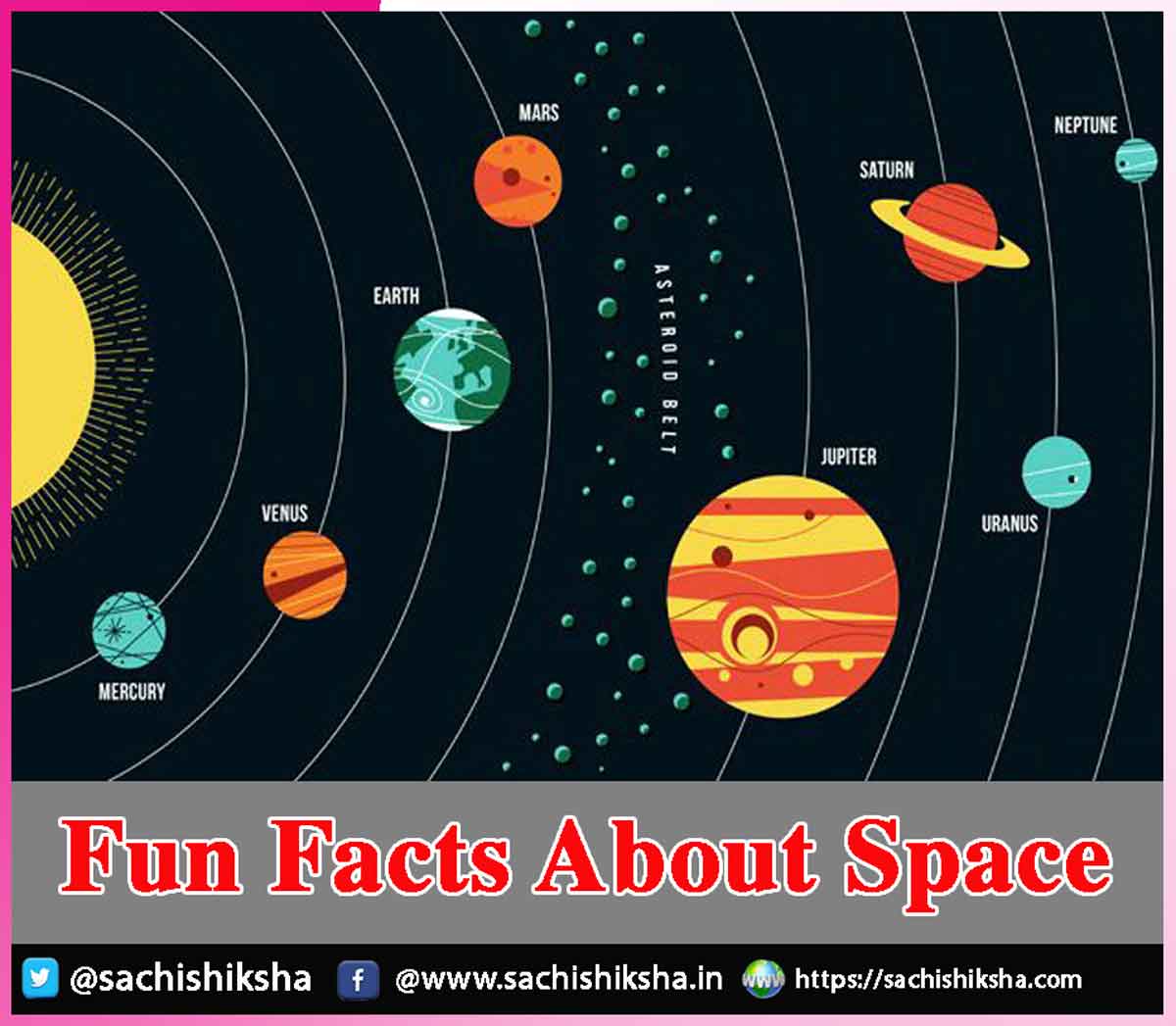Fun Facts About Space
Introduction: Space is vast, mysterious, and, if you look closely, a little weird in the most delightful way. Beyond the breathtaking views from telescopes and the mind-boggling physics, the universe hides plenty of quirky, fascinating facts that make you say, “Wait… what?” Let’s explore some fun nuggets from the cosmos.
Table of Contents
Space isn’t Completely Silent

You’re Always Falling in Space
Astronauts on the International Space Station look like they’re floating, but they’re actually in continuous free-fall towards Earth. The only reason they don’t crash is because the station is moving sideways at about 28,000 km/h, matching Earth’s curve. So, next time you see astronauts floating, remember, they’re basically in an endless game of cosmic “trust fall.”
One Day on Venus Lasts Longer Than a Year
Venus rotates so slowly on its axis that one day there lasts 243 Earth days. Meanwhile, it only takes 225 Earth days to complete one orbit around the Sun. This means if you moved to Venus, you’d technically celebrate your birthday before you saw a single sunrise. Cake first, morning later.
The Moon is Slowly Drifting Away
Every year, the Moon moves about 3.8 centimeters farther from Earth. That’s roughly the speed your fingernails grow. In a few hundred million years, Earth’s total solar eclipses will no longer happen because the Moon will appear too small to block the Sun completely. So, enjoy them while you can, our distant descendants might only get partial eclipses.
There’s a Planet Made of Diamonds
Somewhere out there, 40 light-years away, lies a planet nicknamed “Lucy” (officially 55 Cancri e) that’s thought to be composed largely of diamond. It’s about twice the size of Earth and has extreme temperatures, so unfortunately, it’s not a place you can just visit with a mining pick and a shopping bag.
Neutron Stars are Ridiculously Dense
Neutron stars are the collapsed cores of massive stars that exploded in supernovas. They cram more mass than our Sun into a sphere just 20 kilometers wide. A single teaspoon of neutron-star material would weigh about 6 billion tons. That’s heavier than all the cars on Earth combined, so don’t drop it on your foot.
Space Smells Funny
Astronauts returning from spacewalks report that their suits smell faintly like seared steak, welding fumes, or gunpowder. Scientists think this odor comes from “aromatic hydrocarbons” created when high-energy particles interact with spacecraft materials. Sadly, you can’t sniff space directly, you’d need a suit unless you enjoy instant unconsciousness.
You Could Fit All the Planets Between Earth and the Moon
If you lined up every planet in our Solar System side by side, Mercury through Neptune, they would just about fit in the average distance between Earth and the Moon (384,400 km). Suddenly, the Moon doesn’t seem so “close” anymore.
Black Holes Don’t “Suck”
Contrary to movie depictions, black holes don’t go around vacuuming up everything in sight. If our Sun magically turned into a black hole of the same mass, Earth would still orbit it at the same distance. The real danger is getting too close, cross the event horizon, and physics as we know it takes a coffee break.
There Are More Stars Than Grains of Sand on Earth
Astronomers estimate that the observable universe contains about 1 septillion stars, that’s a 1 with 24 zeros. This outnumbers every grain of sand on every beach and desert on Earth. Somewhere out there, one of those stars might host a planet with someone wondering the same thing about us.
Final Thought
Space isn’t just a cold, empty void, it’s a cosmic playground full of mind-bending oddities. From diamond planets to drifting moons, the universe constantly reminds us how small, lucky, and curious we are. The next time you look up at the night sky, remember: every twinkle hides a story, and some of those stories are stranger (and funnier) than fiction.














































